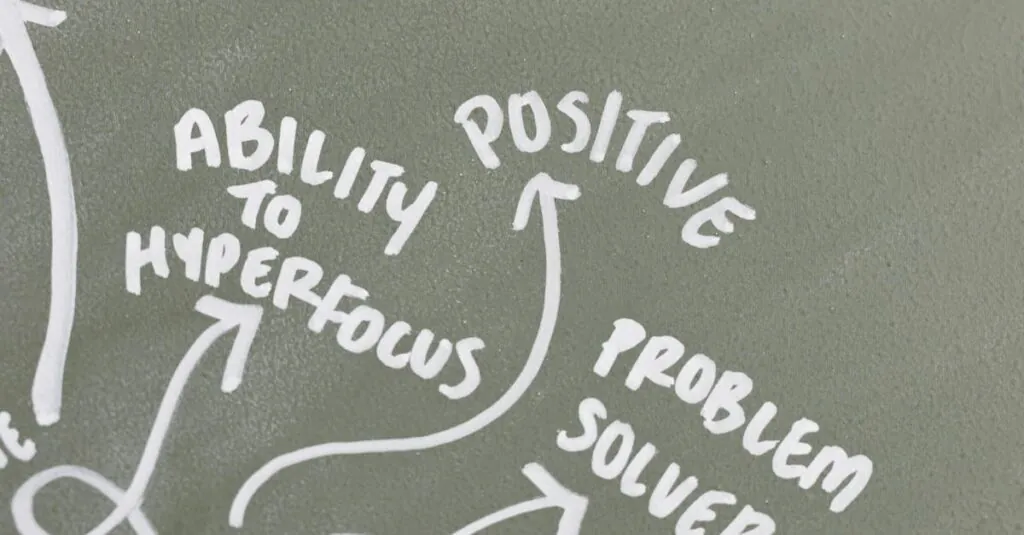In a world overflowing with information, critical thinking isn’t just a skill; it’s a superpower. Imagine navigating life’s challenges with the sharpness of a ninja and the wisdom of a sage. Mastering critical thinking transforms not just how one thinks but also how one lives. It’s like upgrading from a bicycle to a rocket ship on the journey of personal growth.
Table of Contents
ToggleUnderstanding Critical Thinking Mastery
Critical thinking mastery represents a crucial skill set in navigating today’s complex information landscape. It empowers individuals to analyze, evaluate, and synthesize information effectively.
Definition and Importance
Critical thinking refers to the ability to think clearly and rationally about what to believe or do. This skill fosters informed decision-making, allowing individuals to assess situations critically. In a world filled with overwhelming information, mastering this skill enables people to discern reliable sources from misleading ones. Its significance lies in enhanced problem-solving capabilities, promoting personal growth and fostering resilience against misinformation. When individuals develop this skill, they can approach challenges methodically, leading to better outcomes in both personal and professional realms.
Key Components
Four key components define critical thinking mastery. First, analysis requires breaking down complex information into manageable parts. This process helps identify relationships and patterns. Next, evaluation involves assessing the credibility of sources and the validity of information. This component is essential for separating facts from opinions. Synthesis combines different viewpoints, leading to comprehensive solutions. Lastly, reflection encourages self-assessment and the consideration of one’s thought processes. Emphasizing these components strengthens critical thinking skills, paving the way for continuous personal growth and development.
Transforming Your Mindset
Transforming mindset significantly influences personal growth. It shapes perspectives and determines how individuals approach challenges.
The Role of Mindset in Personal Growth
Mindset directly impacts learning and resilience. Individuals with a growth mindset embrace challenges, viewing them as opportunities rather than obstacles. This perspective fosters motivation and encourages persistence despite setbacks. Critical thinking mastery plays a vital role here by allowing individuals to analyze information objectively and reflect on experiences. People can build stronger decision-making skills and enhance their ability to adapt through this process.
Strategies for Developing a Growth Mindset
Developing a growth mindset involves intentional practice. Individuals can start by seeking feedback to identify areas for improvement. Embracing failure as a learning opportunity builds resilience and promotes continuous growth. Surrounding oneself with positive influences also cultivates a supportive environment, enhancing motivation. Practicing self-reflection encourages awareness of thought patterns and allows for constructive change. Engaging in critical thinking exercises further strengthens cognitive abilities, leading to a more resilient mindset.
The Connection Between Critical Thinking and Personal Growth
Critical thinking significantly impacts personal growth by refining decision-making abilities and addressing cognitive biases. These aspects pave the way for a more thoughtful approach to challenges.
Enhancing Decision-Making Skills
Critical thinking hones decision-making skills through careful analysis and evaluation of information. By breaking down complex situations, individuals discern potential outcomes more effectively. Better decisions often lead to improved outcomes in personal and professional settings. Skills such as synthesizing diverse perspectives empower individuals to embrace more informed choices. Engaging in reflective practices can amplify this process, cultivating a proactive attitude towards decision-making.
Overcoming Cognitive Biases
Cognitive biases can cloud judgment and hinder personal growth. Critical thinking helps individuals recognize these biases, allowing them to approach situations impartially. Acknowledging the influence of confirmation bias contributes to more balanced perspectives. Employing analytical techniques encourages conscious examination of one’s thoughts and beliefs. Strategies like seeking diverse viewpoints further mitigate biases, promoting well-rounded decisions. Practicing critical thinking thus lays the groundwork for clearer, more rational thought processes.
Practical Techniques for Mastering Critical Thinking
Mastering critical thinking involves utilizing specific techniques that enhance analytical abilities and promote personal growth.
Engaging in Reflective Practices
Reflective practices stimulate critical thinking by encouraging individuals to analyze their experiences. Practitioners often journal about thoughts and decisions. This process promotes deeper understanding and helps identify patterns in thought processes. Thought-provoking questions, such as “What worked well?” or “What could I improve?”, facilitate self-evaluation. Regular reflection sharpens awareness of biases, leading to clearer insights. Participating in group discussions enhances exposure to diverse perspectives. Collaborative reflection enables individuals to confront preconceived notions while refining their viewpoints.
Effective Problem-Solving Approaches
Effective problem-solving significantly benefits from critical thinking skills. Breaking problems into manageable parts clarifies complex issues. Identifying underlying causes, rather than symptoms, allows for a comprehensive understanding. Using tools like mind mapping organizes thoughts visually, promoting clarity. Group brainstorming sessions foster collaborative solutions, leveraging diverse expertise. Applying the “5 Whys” technique helps uncover root causes by asking why repeatedly until the fundamental issue appears. Testing various solutions and evaluating outcomes ensures continuous improvement, refining decision-making skills. Implementing these approaches enhances adaptability and equips individuals to navigate challenges proficiently.
Real-Life Applications and Benefits
Critical thinking mastery brings significant real-world benefits across various aspects of life. Engaging with this essential skill transforms individuals’ thinking and decision-making processes.
Case Studies of Transformation
Several individuals demonstrate the powerful impact of critical thinking mastery on their lives. For instance, a project manager who embraced critical thinking improved team dynamics and efficiency by evaluating processes critically. In another case, a student learned to assess sources rigorously, which led to heightened academic performance and a deeper understanding of complex topics. Transformations in these cases highlight the skill’s ability to cultivate resilience and adaptability, showcasing its broader implications for personal growth.
Impact on Career and Relationships
Enhancements in critical thinking directly influence career advancement and personal relationships. Employees skilled in critical thinking often receive promotions, as their decisions become more strategic and informed. In relationships, individuals who practice critical thinking foster better communication by evaluating different perspectives effectively. This approach nurtures stronger connections and resolves conflicts more efficiently. As a result, fostering critical thinking enriches both professional and personal domains, leading to lasting improvements.
Mastering critical thinking is a transformative journey that reshapes one’s mindset and opens doors to personal growth. By honing analytical skills and embracing a growth mindset, individuals can navigate life’s challenges with confidence and clarity. The ability to evaluate and synthesize information not only enhances decision-making but also fosters resilience against misinformation and cognitive biases.
As individuals commit to developing these skills, they cultivate a proactive approach to obstacles, viewing them as opportunities for growth. This continuous improvement leads to better outcomes in both personal and professional realms, ultimately enriching their lives and relationships. Embracing critical thinking mastery is not just an investment in skill development; it’s a commitment to lifelong personal evolution and success.





